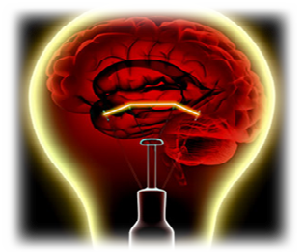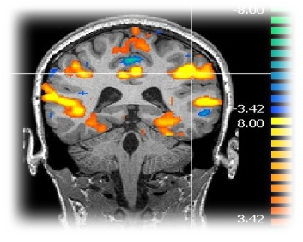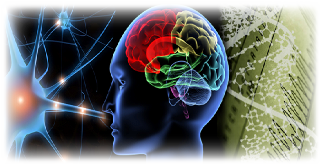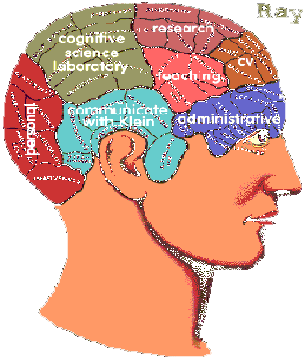Neuroscience with Psychology
Neuroscience
Neuroscience is the study of nerve cells and how they work together to form the brain. The nervous system regulates many internal functions and also co-ordinates the activities we know as human behaviour. Since nerves communicate with each other by producing electrical signals, Neuroscientists have to push technologies to the limit to study the nature of these signals by recording from individual nerve cells and even from single molecules. The brain is clearly a very complex and delicate organ.
By unravelling the mysteries of normal brain function, Neuroscience promotes our understanding of the devastating illnesses of the brain, which afflict the lives of many people.
Neurological disorders affect millions of people around the world. For most of these disorders, treatment is still either unsatisfactory or non-existent. Neuroscience research can include the study of cellular and molecular neurobiology, neuronal survival and death, development and regeneration of brain cells, cell to cell communication and the study of receptors and their modulation.


Through these investigations, neuroscience research aims to understand such well known diseases as stroke, Alzheimer's disease, Parkinson's and Huntington's diseases and multiple sclerosis. Neuroscience research can also include work on the optic nerves, cardiac function, sense of smell, difficulty in swallowing, weakness in the muscles and other diseases and health problems since many of these have a neural basis.
Careers
Neuroscience graduates find employment in the biomedical research, biotechnology and pharmaceutical industries. Others choose further study in related areas such as medicine, veterinary science, dietetics, physiotherapy, and teaching. An understanding of contemporary biology combined with your wider graduate skills will give you a broad choice of potential career options such as bioethics, law, journalism, and health economics.
Additional career options include the Scientific Civil Service, the Health Service, patenting, medical sales, the software sector, management and administration, and some have set up their own businesses.
All School of Medical Sciences Degree Programmes
Biomedical Science Degrees
- Biomedical Sciences
- Exercise and Health Science
- Human Embryology and Developmental Biology
- Neuroscience with Psychology
- Immunology and Pharmacology
- Pharmacology
- Physiology
- Sports and Exercise Science
Molecular Medical Science Degrees
- Biochemistry
- Biotechnology
- Genetics, Genetics (Immunology)
- Immunology
- Microbiology
- Molecular Biology
How do I search for educational options in psychology and neuroscience?
The brain is an increasingly popular topic of study that spans many disciplines in science. For example, if one were to pick up a copy of a course catalog or academic posting from decades past, one would find listings in programs such as psychobiology, psycho neurobiology, and behavioural neuroscience. Regardless of the terminology, many if not most were in a department
of psychology and emphasized the “psych” nature of the discipline.However, if one were to download a copy of such listings today, one would find options in interdisciplinary neuroscience programs or neuroscience departments per se in addition to those found in programs of psychology departments, which ever increasingly are named to emphasize the “neuro” aspects of the discipline. The name and location (e.g., department) of a given program of interest will reflect the specific type of training you will receive and can be informative in directing your search according to your educational goals.
Successful behavioural neuroscience programs within psychology departments often have a concentration of faculty working in related areas — they can pool resources, collaborate on grants and papers, and have a legacy of generating a line of psychological scientists.

On the other hand, a key strength of interdisciplinary neuroscience departments is that they support collaborations among scientists with diverse scientific backgrounds including, but not limited to, psychological science. Neuroscience departments often have more of a molecular emphasis as well. That being said, an accomplished psychological scientist can be produced from either type of training environment.
Graduate students frequently have the option of obtaining a PhD in psychology or neuroscience, where the difference translates to a few courses. Some graduate programs even offer dual PhD’s in psychology and neuroscience. The boundary between a degree in psychology with a biopsychology (or behavioral neuroscience) emphasis and a degree in neuroscience is, in general, quite blurred. Indeed, graduate and postdoctoral trainees regularly compete for the same jobs and resources.
When I graduate with training in psychology and neuroscience, what types of opportunities are available to me?
A PhD in psychology and neuroscience can take you many places. Just be aware that after earning a PhD, many people perform 2-3 years of post-doctoral training at a different institution to gain supplementary experience. Faculty or research positions are available for those with a PhD in psychology and neuroscience in various academic departments or medical colleges. Research and administrative career opportunities can also be found in public agencies (e.g., National Institutes of Health, Food and Drug Administration, Environmental Protection Agency, Centres for Disease Control and Prevention) and private companies (e.g., pharmaceutical, biotechnology).
Numerous other no research options are also available, including teaching, scientific writing and public policy.
My experiences at the Society for Neuroscience meeting indicate that combined training in psychological science and neuroscience is valued and sought. Although the current market for jobs and funding is challenging, there is a demand for scientists who can perform or communicate interdisciplinary and translational research in neuroscience, which greatly benefits from the unique perspective offered by those with psychological training.
